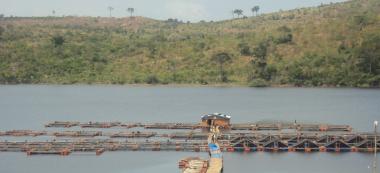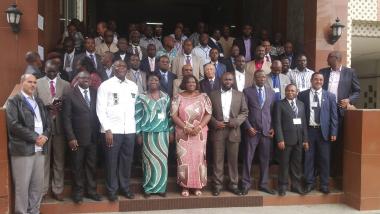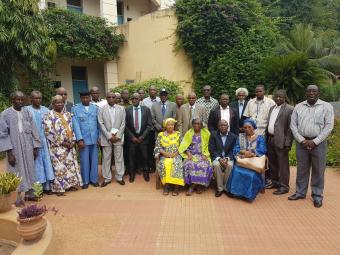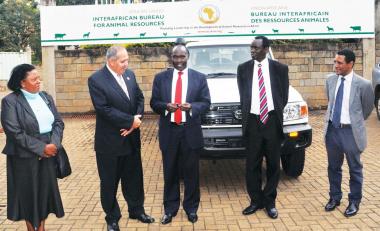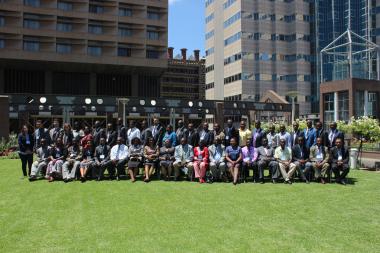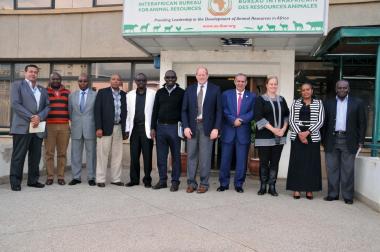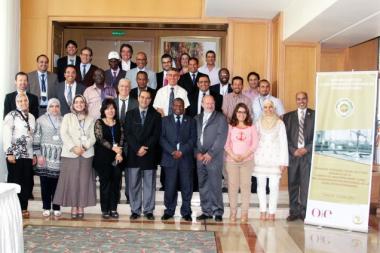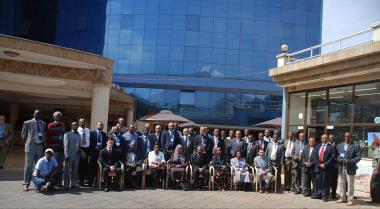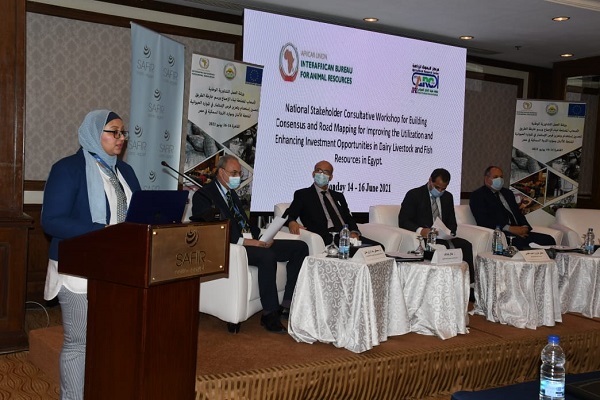
Within the context of Supporting African Union Member States in incorporating Livestock in their CAADP Compliant National Agricultural Investment Plans (NAIPs), AU-IBAR in partnership with the Ministry of Agriculture and Land Reclamation, in Egypt is conducting a 2-day National Stakeholder Consultative Workshop for Building Consensus and a Road-map for improving the utilization and enhancing investment opportunities in dairy livestock and fish Resources in Egypt.
The workshop is being conducted through two main activities:
1. The Stakeholder Consultative Workshop on 14-15 June 2021 will be arranged in two parallel consultative groups; the Dairy Livestock Resources Group and the Fish Resources (Fishery and Aquaculture) Group. The total number of participants will be around a hundred (100) participants, representing different stakeholders of the specific Value-Chain (inputs, production, processing, and value-add) in addition to the cross-cutting issues of research and development, policy and legislation, safety, and quality, climate change, information, employment of youth and women, and Credit and finance).
2. A writeshop will be held on 16th June, 2021 to validate, consolidate and report the primary outcomes from the two-day stakeholder consultative workshop.
The objectives of the Stakeholder Consultative Workshop and the Write shop are to:
• Discuss the Base-Line status of the utilization and investment in dairy livestock and fisheries (Fishery and Aquaculture) resources.
• Identify the specific priority for improving the utilization and enhancing the investment.
• Identify opportunities in dairy livestock and fisheries (Fishery and Aquaculture) resources.
• Set the road map and identify prioritized interventions for improving the utilization and
• Enhance investment opportunities in both Dairy Livestock and the Fisheries resources Value Chains.
• Validate, consolidate and report the outcomes from the stakeholder consultative workshop, to feed the development investment plan.
Underfunding from the European Union, AU-IBAR, within the Live2Africa, has been leading pilot activities to support eleven (11) selected Member States to incorporate Livestock in their National Agricultural Investment Plans (NAIPs). The list of selected MSs are:
i. Central Africa: Cameroon and Chad; and Republic of Central Africa
ii. Eastern Africa: Kenya and Rwanda;
iii. Northern Africa: Egypt and Morocco;
iv. Southern Africa: Botswana and Lesotho; and
v. Western Africa: Burkina Faso, and Ghana
Work under this initiative has so far commenced in three countries. Namely two consultative workshops conducted from October 30th to November 1st, 2019, in Cairo, Egypt, while the second was conducted in Accra, Ghana, from 10th to 12th March, 2020, with the overall objective: “To assist the eleven (11) Member States in incorporating Livestock in their Malabo Compliant NAIPs”. AU-IBAR has also been working with the Kenya Department of Livestock to develop the Kenya Livestock Master Plan.
The Dairy Livestock Value Chain was identified as the prioritized value chain in Egypt and North Africa in the Value Chain Prioritization consultative workshop held in Cairo, Egypt, in August 2018. In addition, Egypt is considered the first African country in aquaculture production. Therefore, this consultative workshop will focus on those two prioritized value chains (Dairy livestock and Fish production).
Implementation of prioritized intervention for developing the utilization and enhancing the investment will contribute to the transformation of livestock and fish production by strengthening the capacity of the National sectors in the sustainable measures of economic, environmental, and social change. This workshop is being implemented within the context of “Supporting Member States Incorporating Livestock in their Malabo Compliant National Agricultural Investment Plans, NAIPs.”

